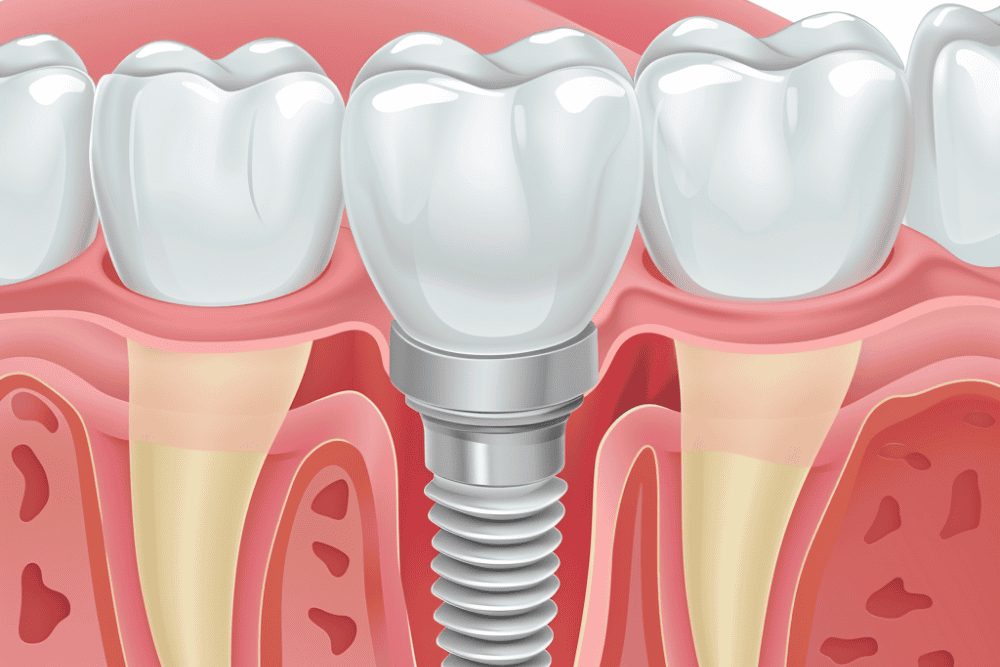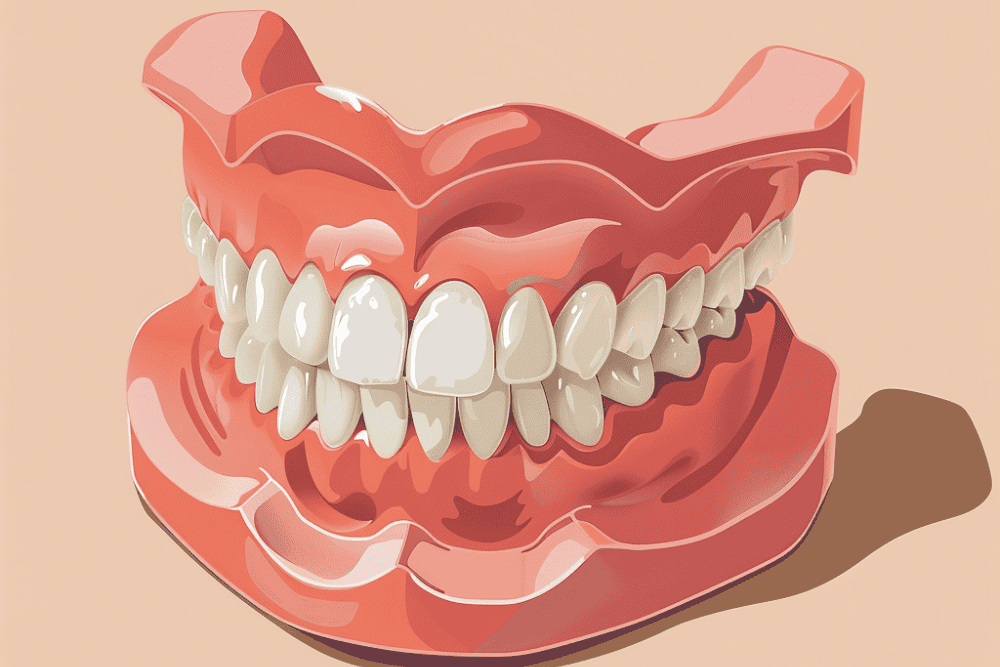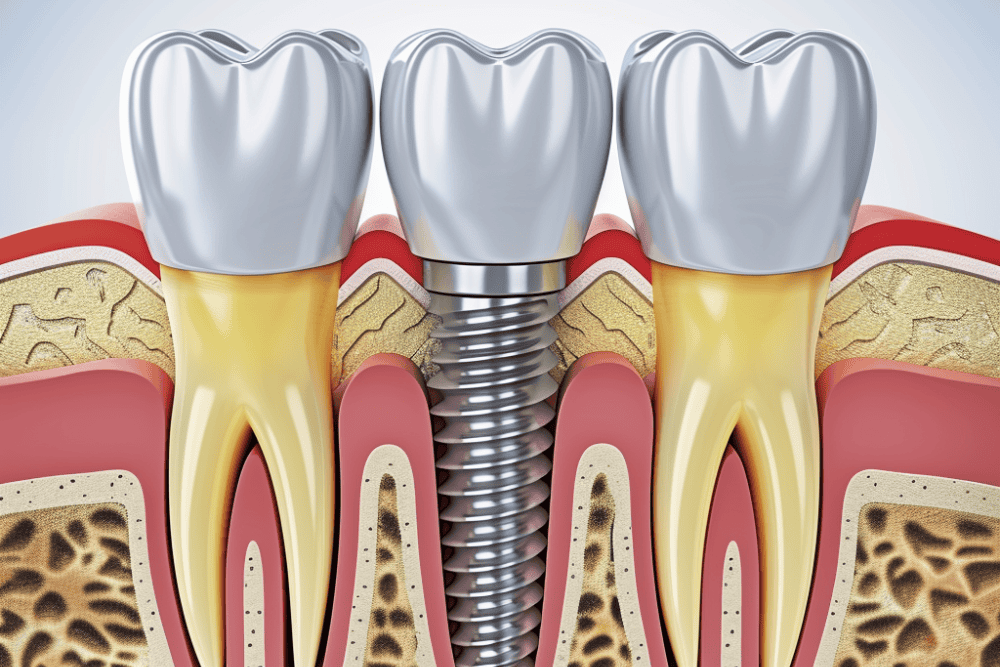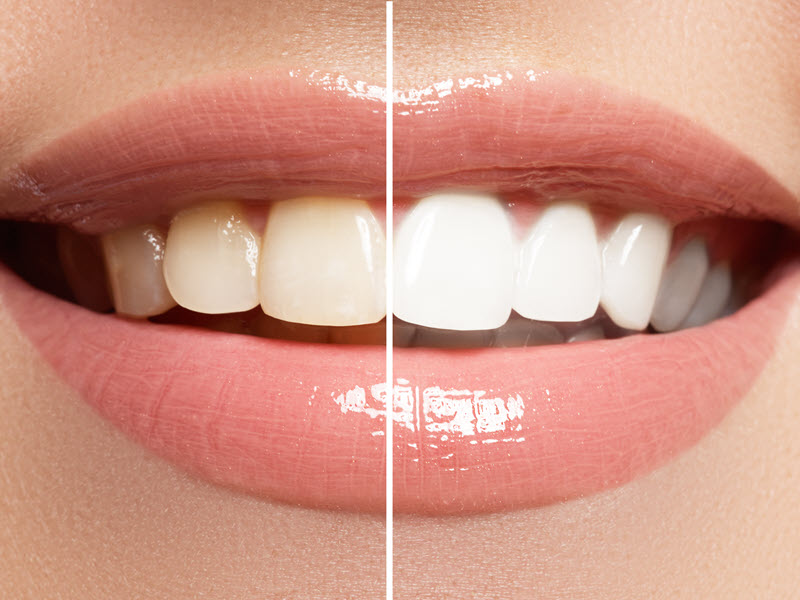A Detailed Look at The Benefits and Drawbacks of Dental Implants
Thinking about getting dental implants? They can improve your smile and oral health and are the most reliable tooth replacement option available. Knowing the pros and cons helps you decide if they fit your needs.
Here we’re going to discuss the pros and cons of dental implants before getting into a bit more depth on the parts of a dental implant as well as what you can expect during an actual dental implant surgery procedure.
Pros of Dental Implants
Dental implants offer numerous benefits, improving oral function, comfort, appearance, and long-term oral health. They are designed to integrate with your jaw bone, making them a reliable and effective solution for tooth replacement.

Information about Your Dental Implants can be Tracked with a Dental Implant Card
PRO: Improved Oral Function
Chewing
Dental implants provide stability for chewing. Unlike dentures (which are an inferior tooth replacement option), implants do not shift in your mouth. This allows you to eat various foods without worry. The implant acts like a natural tooth root. This design keeps your chewing ability intact – you can even crunchy fruits and chewy meats just as you could with your real tooth.

Dental Implants Act Just Like Your Natural Teeth
Speaking
A huge, oftentimes underrated benefit of dental implants is better speech communication. You can speak just as clearly with a dental implant as you could with your real tooth.
PRO: More Comfortable Than Denture Alternatives
Dental implants offer greater comfort compared to dentures. They become a permanent part of your mouth. You won’t experience the slipping or movement common with dentures. This will give you confidence in social situations.
You also avoid the hassle of removing and cleaning that comes with removable dentures. Proper oral hygiene with dental implants involves brushing and flossing just like with natural teeth – so you’ll keep your normal dental care routine.
And no more adhesives! Dental implants also eliminate the nastiness and discomfort of denture adhesives, making your life simpler – and less sticky.

Dental implants are more comfortable, won’t slip, and you won’t have to deal with the messy adhesives
PRO: Dental Implants Look Natural
While dental implants are a restorative dentistry procedure, they do come with cosmetic dentistry benefits. Implants improve the appearance of your face and smile. They look and feel like natural teeth, enhancing your self-esteem.
The crown on your dental implant matches the color and shape of your natural teeth. This makes the implant blend in seamlessly with surrounding teeth. A smile that was previously negatively affected by a missing tooth will be perfect once again with the addition of a dental implant.
Implants can also prevent the sagging of facial muscles. This helps maintain a youthful look. It also avoids the sunken appearance that occurs when teeth are missing. The overall aesthetics of your face improve significantly.
PRO: Long-Term Oral Health Benefits
One problem that occurs with a missing tooth is that bone loss can occur. The jaw bone beneath the missing tooth can deteriorate, and as a result, that one missing tooth can result in the loss of neighboring healthy teeth.
Dental implants help to solve this issue by anchoring to your jawbone and keeping it healthy. This prevents bone loss which improves the stability of your remaining teeth.
Implants also help maintain your gum tissue and prevent receding gums. They do not require altering adjacent teeth, unlike bridges. This preserves the integrity of your natural teeth without subjecting them to additional strain that occurs with a bridge.
Cons of Dental Implants
CON: Surgical Complications
Dental implants offer many benefits but come with certain risks. As with any surgical procedure, there are risks involved with a dental implant procedure.
Infection and Inflammation
Infections can occur after implant surgery. Bacteria can enter the gums and cause swelling or redness. Poor oral hygiene and smoking increase this risk. Symptoms include pain, fever, and bad breath. Treatment usually requires antibiotics.
Inflammation around the implant site can even lead to periodontal disease. This affects the gums and bone supporting the implant. Early signs include bleeding gums and discomfort while chewing. Daily brushing and professional cleanings help reduce this risk.
Implant Failure and Rejection
Implant failure is rare but possible. This can occur if the bone doesn’t integrate with the implant. Factors like diabetes and smoking can increase implant failure risks.
Nerve damage is another undesirable side effect that can also happen if the implant is placed incorrectly. Nerve injuries can result in numbness and tingling. These symptoms may be temporary but can sometimes be permanent. You might need a revision surgery if the implant fails or causes nerve issues.
Additional Surgical Risks
Surgical risks include sinus damage and improper implant placement. For upper jaw implants, there’s a risk of penetrating the sinus cavity. This can cause sinus infections or headaches. You may require a sinus lift to correct this issue.
As previously mentioned, bone grafts may be necessary if you have insufficient bone density. These additional surgeries increase costs and recovery time.

As with all surgical procedures there are risks involved with dental implant surgery, including infection, inflammation and discomfort
CON: Costs Involved
Dental implants can be expensive, and it’s important to understand the costs involved, as well as how insurance might help. A single implant typically costs between $3,000 and $5,000 or more. This wide range depends on factors like location, dentist’s experience, and your specific needs.
Additional treatments, such as sinus lifts or the need for a bone graft, can increase the total cost. These procedures may be required for successful implant placement. The brand of the implant and materials used can also affect the price.
CON: Insurance Likely Won’t Cover All Costs
Dental insurance usually doesn’t cover the full cost of implants. Some plans may cover a portion of restorative procedures like dental implants – while it can vary, the costs covered oftentimes are around 50%. Check your plan’s details to know what’s included.
For those without coverage, there are options like health savings accounts (HSAs) and flexible spending accounts (FSAs). At our Fort Collins dental office, we even offer financing through third party services (CareCredit & Cherry). Many dental offices (Including Murphy Dental) even have in house dental plans which can help to cover the costs of many dental procedures.
Now that we’ve covered the pros and cons of Dental Implants, we’ll take a closer look at the components of a dental implant, as well as what happens during dental implant surgery.
CON: Long Process
The process of getting a dental implant will take months. The dental implant procedure takes place in stages, the first of which involves a post that takes time to get integrated with your jaw bone before the next steps in the process can be taken. Note that while this process takes longer to complete than other quick fixes like dentures or bridges, the dental implant is much more reliable and functional long term than other dental solutions.
Understanding Dental Implants
Components of a Dental Implant
A dental implant has three key parts.
- Post – The first part of a tooth implant is the post. Oftentimes made of titanium, the post of a titanium dental implant consists of a screw placed into your jawbone. This post roots your implant to your jawbone. It fuses with the bone in a process called osseointegration.
- Abutment – The second part is the abutment. It connects the post to the crown.
- Crown – The crown sits on top of tooth implants. This artificial tooth serves as your replacement tooth. It looks like a natural tooth and sits on top of the abutment.
Dental Implant Surgery Procedure
The dental implant surgery procedure involves several essential steps. Here’s what you can expect from the implant dentistry process, starting from the initial assessment to post surgery recovery.
Initial Assessment
You will first need a thorough examination by an oral and maxillofacial surgeon or periodontist. In our office, Dr. Murphy will provide this initial assessment. They will check your oral health, focusing on your gums and jaw bone.
If you are a candidate for dental implant surgery, it is possible that a tooth extraction may be necessary. Any damaged teeth will need to be removed before the dental implant process can begin.
Your dentist will also conduct imaging – including x-rays and perhaps 3D images of your jaw. These images help plan the exact placement of the implants.
The Surgical Process
During oral surgery, you will receive local anesthesia or sedation to numb the area. The oral surgeon will make an incision in your gum. This opens the bone to place the implant. If you lack enough bone, bone grafting may be required. Synthetic bone or bone from another part of your body can be used in order to provide a stable base for the dental implant.
With titanium implants, the implant, a titanium post, is inserted into your jawbone. After the implant is placed, your gum is stitched back. The implant needs time to fuse with your bone, a process called osseointegration. This can take several months. Sometimes a temporary crown is placed while you heal.
Aftercare and Recovery
After dental implant restoration, you’ll need to follow specific aftercare instructions. Your dentist will prescribe medications, including pain relief and antibiotics. You must avoid certain foods and activities to allow proper healing. Good oral hygiene is crucial. Brush and floss gently around the implant site.
Regular check-ups with your dentist ensure the implant is healing well. They will assess if you need adjustments in your treatment plan. Once healing is complete, a permanent crown is attached to the implant.
Considering Dental Implants
Choosing dental implants involves thinking about your overall health and lifestyle. Learn who makes a good candidate and what health factors you need to consider.
Evaluating a Good Candidate
You need strong, healthy gums for dental implants. If you have gum disease, deal with that first. Bone loss can also affect your eligibility. A strong jawbone supports the implant.
Tooth loss from injury or decay makes you a prime candidate. Dental implants help if you have one or more missing teeth. They keep your jawline’s shape and improve speech.
Age can play a role but doesn’t usually disqualify you. Teens might not be ideal because their jawbones are still growing.
Lifestyle and Health Considerations
Smokers face extra challenges with dental implants. Smoking slows healing and increases risks. You must be ready to quit or reduce smoking.
Oral hygiene must be excellent. Implants need regular cleanings just like natural teeth. If you struggle with maintaining oral hygiene, reconsider.
Health factors:
- Conditions like diabetes need careful management.
- Medications that affect bone health must be considered.
Aging people may need to think about bone density. Regular dental check-ups ensure implants last.
Eating habits also matter. A balanced diet supports healing and long-term success.
Frequently Asked Questions
What are the advantages and disadvantages of choosing dental implants over a dental bridge?
Dental implants offer many benefits over bridges. Implants look and feel like real teeth. They help prevent bone loss and maintain face shape. Perhaps most importantly, they don’t rely on neighboring teeth for support.
Implants require surgery and recovery time. Bridges usually cost less and take less time to complete. Bridges don’t need surgery, making them less invasive. However, bridges can lead to the weakening of nearby teeth and make them more susceptible to tooth decay.
What are the advantages and disadvantages of choosing dental implants over dentures?
Dental implants are natural looking and can last a long time – oftentimes a lifetime with proper care. They are also much more stable and comfortable than dentures as implants are anchored directly into your jawbone. This anchoring helps to strengthen the jaw bone and works to prevent additional tooth loss. They won’t slip like dentures.

Dental Implants are secured to the jaw bone, keeping it strong. This helps to avoid additional tooth loss – as opposed to other tooth replacement options
Dentures aren’t as effective as dental implants but they do come with certain benefits. First off, they’re significantly less expensive than dental implants, and you can have an operational set of dentures much more quickly than you can complete a dental implant procedure from start to finish (It can take months).
Not everyone is a candidate for dental implants, making dentures a more viable option for many who are suffering from tooth loss. Dentures also don’t come with surgical risk that comes with any dental procedure (including implants). Dentures do however limit the foods that you may be eligible to eat, and dentures also don’t prevent tooth loss by anchoring into the jaw bone as dental implants do.















